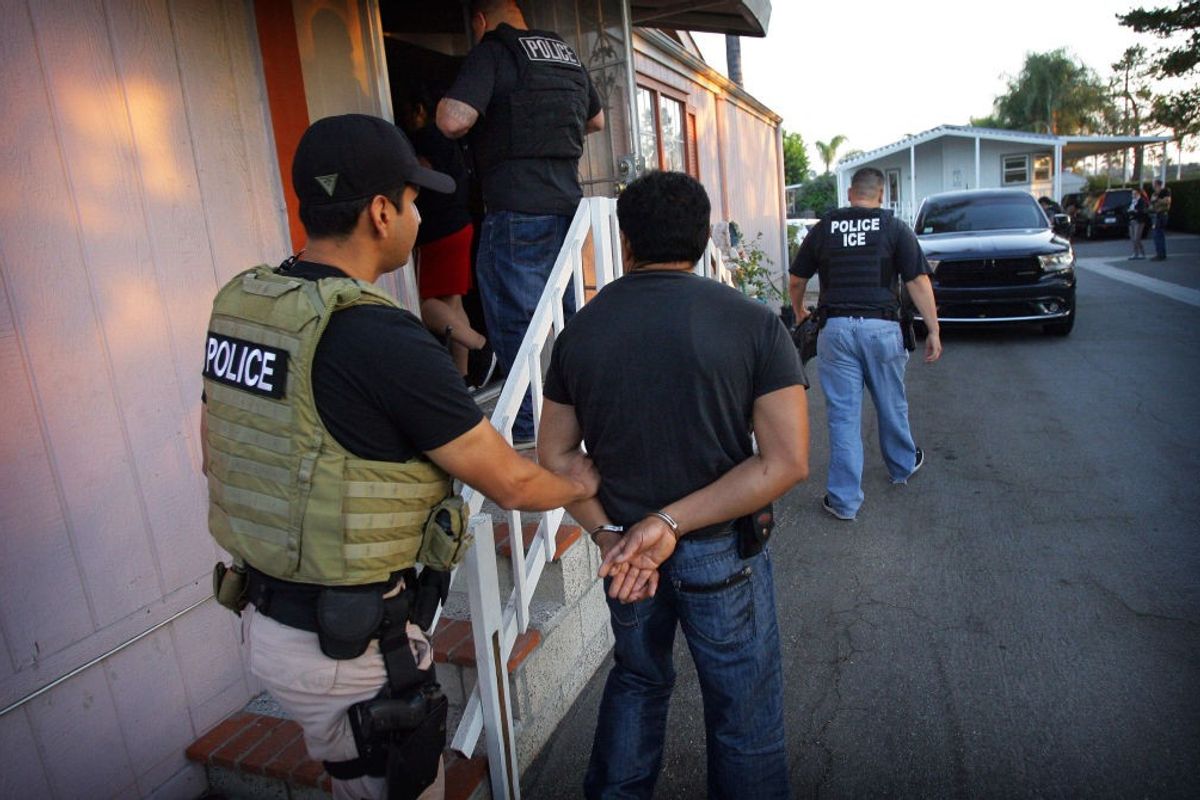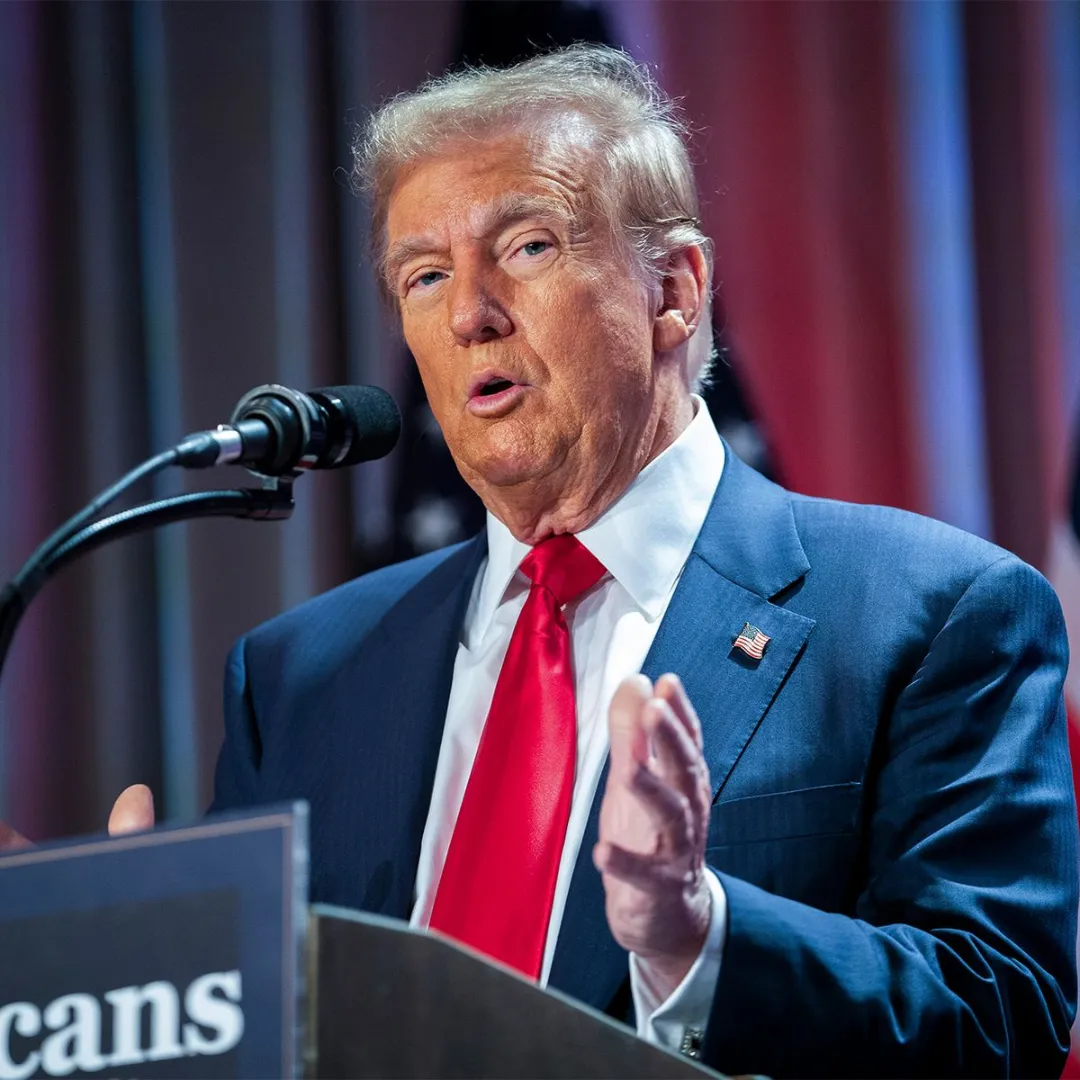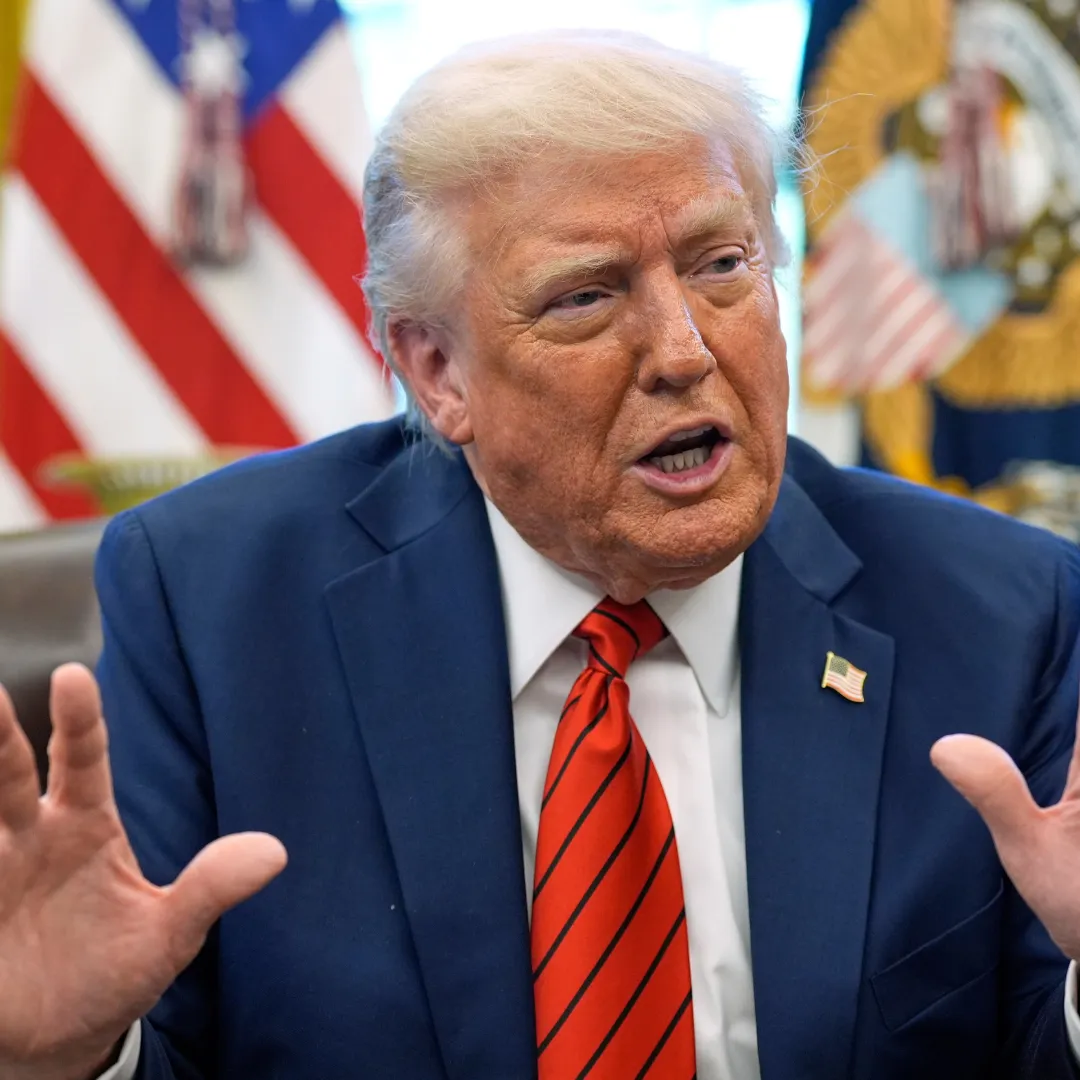A leaked internal memo has revealed that for over a month, the Trump administration has secretly authorized Immigration and Customs Enforcement (ICE) agents to enter homes without judicial warrants in their efforts to apprehend suspected members of the Venezuelan gang Tren de Aragua.
The directive, issued by Attorney General Pam Bondi on March 14, has sparked an immediate wave of outrage from civil rights organizations and legal scholars, raising serious concerns about constitutional protections under the Fourth Amendment.
The memo, obtained by USA Today through the nonprofit organization Property of the People, shows that ICE agents were instructed to bypass the traditional requirement of obtaining a judicial warrant before entering a private residence.
Instead, agents could act on a "reasonable belief" that an individual met certain criteria outlined in an attached Alien Enemy Validation Guide.
The controversial guidance reads, "Given the dynamic nature of enforcement operations, officers in the field are authorized to apprehend aliens upon a reasonable belief that the alien meets all four requirements to be validated as an alien enemy."
The memo continues, "This authority includes entering an alien enemy’s residence to make an apprehension where circumstances render it impracticable to first obtain a signed notice and warrant of apprehension and removal."
The Alien Enemy Validation Guide accompanying the memo provided a detailed points-based system for ICE officers to use in determining whether an individual could be considered a member of the Tren de Aragua gang, known for its violent operations throughout Venezuela and parts of Latin America. The guide offered various indicators, including tattoos, affiliations, criminal records, and associations with other validated members.
One day after the memo’s issuance, the Trump administration deported over 200 individuals to El Salvador’s notorious Terrorism Confinement Center (CECOT), including several individuals who were not Venezuelan and had no documented gang affiliations.

Among those mistakenly deported was Kilmar Abrego Garcia, a Maryland father who had lived in the United States for years and had no criminal record. His wrongful deportation has become a rallying point for critics of the administration’s immigration crackdown.
The basis for the administration’s actions stems from President Donald Trump’s March 15 proclamation invoking the Alien Enemies Act of 1798. The centuries-old law, passed during the presidency of John Adams, permits the United States to apprehend and remove citizens of enemy nations during wartime or in response to an invasion.
Trump’s proclamation declared, "I proclaim that all Venezuelan citizens 14 years of age or older who are members of TdA, are within the United States, and are not actually naturalized or lawful permanent residents of the United States are liable to be apprehended, restrained, secured, and removed as Alien Enemies."
Trump further stated, "I find and declare that all such members of TdA are a danger to the public peace or safety of the United States."
However, many legal experts argue that Trump’s application of the Alien Enemies Act does not meet the necessary conditions for its use. There is no declared war between the United States and Venezuela, nor has there been a documented invasion or predatory incursion as defined by the law.
Critics maintain that expanding the definition to include domestic criminal organizations without formal ties to a state actor stretches the statute beyond its original intent.
The administration's use of this authority has already triggered several lawsuits, most notably by the American Civil Liberties Union (ACLU), which filed actions earlier this month to block further deportations under the Alien Enemies Act. Lee Gelernt, the ACLU’s lead counsel on the cases, condemned the administration’s tactics.
"The administration’s unprecedented use of a wartime authority during peacetime was bad enough," Gelernt said. "Now we find out the Justice Department was authorizing officers to ignore the most bedrock principle of the Fourth Amendment by authorizing officers to enter homes without a judicial warrant."

The Fourth Amendment to the United States Constitution protects citizens against "unreasonable searches and seizures" and has long been interpreted by courts to require that law enforcement officers obtain a judicial warrant before entering a private residence, except in exigent circumstances.
Legal experts argue that granting ICE agents blanket authority to enter homes without court approval represents a profound departure from constitutional norms.
Civil rights groups have expressed deep alarm at the potential for abuse under the new guidance. Without independent judicial oversight, the risk of misidentification, wrongful apprehension, and racial profiling increases dramatically.
Critics also warn that marginalized communities, particularly Latino and immigrant neighborhoods, will bear the brunt of aggressive enforcement tactics.
Reports have already surfaced suggesting that individuals without any ties to Tren de Aragua have been swept up in raids and deported. Advocacy organizations are documenting cases of U.S. residents and even citizens being mistakenly targeted under the expansive new policies.
The Trump administration’s broader immigration agenda has been defined by aggressive enforcement and a willingness to test legal boundaries.
However, the secret authorization for warrantless home entries represents a new and highly controversial escalation. Immigration advocates fear that the memo’s release is only the tip of the iceberg and that further erosions of due process rights may be forthcoming.
The invocation of the Alien Enemies Act has also drawn attention for its historical context. The law, one of the Alien and Sedition Acts passed during a period of intense xenophobia and political tension in the late 18th century, has rarely been used in modern American history.

Its application in the 21st century, particularly outside of a declared war, has raised serious ethical and constitutional questions.
Opponents of the policy note that the Trump administration’s justification — framing domestic gang violence as a form of "invasion" — sets a dangerous precedent that could be used to justify sweeping executive powers in a wide range of circumstances.
If criminal organizations can be equated with foreign armies, critics argue, the executive branch could sidestep constitutional protections almost at will.
Meanwhile, for the individuals caught in the dragnet, the consequences are devastating. Kilmar Abrego Garcia’s family has publicly called for his return, denouncing his deportation as a violation of his rights and an example of the policy’s reckless implementation.
His case underscores the real-world human cost of policies that prioritize speed and political messaging over accuracy and fairness.
The Department of Homeland Security has defended the new measures, arguing that they are necessary to protect national security and public safety. Officials point to intelligence reports suggesting that Tren de Aragua has been expanding its operations in the United States, engaging in drug trafficking, extortion, and violent crime.
Nevertheless, civil rights groups insist that such threats can and must be addressed within the bounds of constitutional law.
The controversy comes at a politically sensitive time for the Trump administration, which is preparing for a contentious election season. Immigration remains a central issue in Trump’s campaign messaging, with the president frequently portraying himself as the last line of defense against chaos and violence.

Despite the administration’s rhetoric, public opinion remains divided. While some voters support aggressive immigration enforcement, polls consistently show strong bipartisan support for upholding constitutional protections and due process rights.
The leaked memo may intensify existing political divisions and fuel broader debates about the balance between security and civil liberties.
In the coming weeks, legal battles over the administration’s use of the Alien Enemies Act and its warrantless search policy are expected to intensify. Courts will likely be asked to weigh the scope of executive power during peacetime and the inviolability of constitutional protections.
For now, the leaked memo stands as a stark reminder of how fragile those protections can become under political and legal pressure. As the lawsuits proceed and public scrutiny grows, the ultimate fate of the administration’s controversial policy remains uncertain — but the constitutional questions it raises will likely resonate long after the immediate crisis has passed.




